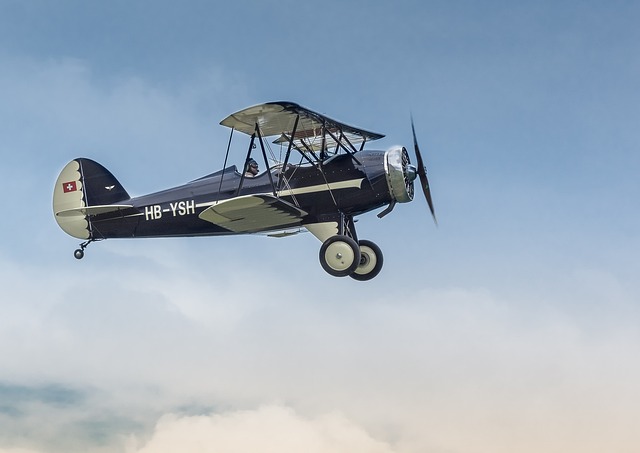Pilot Training for Seniors: Exploring Aviation Later in Life
It's never too late to explore the skies. Many seniors choose to begin pilot training as a rewarding personal goal or long-time dream. Programs are available for different experience levels, with flexible formats and supportive learning environments. Learn what to expect.

What are the benefits of learning to fly after 50?
Learning to fly as a senior citizen offers numerous benefits beyond just acquiring a new skill. It provides a sense of accomplishment and can boost cognitive function by challenging the mind with new information and problem-solving scenarios. Flying also offers a unique perspective on the world, allowing seniors to explore their surroundings from a different vantage point. Additionally, it can be a social activity, connecting like-minded individuals and fostering new friendships within the aviation community.
Are there any age restrictions for pilot training?
There are no upper age limits for obtaining a private pilot’s license in the United States. As long as you can pass the medical examination and meet the other requirements set by the Federal Aviation Administration (FAA), you can pursue your dream of flying at any age. However, it’s important to note that commercial pilot licenses do have age restrictions, with mandatory retirement at 65 for airline pilots.
What medical requirements must seniors meet for pilot training?
To begin pilot training, seniors must obtain a medical certificate from an FAA-designated Aviation Medical Examiner. For a private pilot’s license, a third-class medical certificate is required. This involves a basic physical examination, including vision and hearing tests, as well as a review of your medical history. While some medical conditions may require additional evaluation or special issuance procedures, many seniors find they can meet these requirements with proper management of their health.
How long does it take to complete pilot training for older adults?
The duration of pilot training can vary depending on individual circumstances, including the frequency of lessons and personal aptitude. On average, it takes about 60-70 flight hours to obtain a private pilot’s license. For seniors, this process might take anywhere from six months to two years, depending on their availability and learning pace. Many flight schools offer flexible schedules to accommodate different lifestyles, allowing older adults to progress at a comfortable rate.
What unique challenges and advantages do seniors face in aviation?
Seniors bring a wealth of life experience and maturity to their pilot training, which can be advantageous in decision-making and risk assessment. However, they may face challenges such as longer processing times for new information or physical limitations. To address these, many flight schools offer specialized programs for older adults, focusing on tailored instruction methods and pacing. Some seniors find that their increased patience and dedication to learning actually enhances their training experience.
How much does pilot training cost for seniors?
The cost of pilot training can vary significantly depending on location, type of aircraft used, and the frequency of lessons. On average, obtaining a private pilot’s license can range from $10,000 to $15,000. This typically includes flight time, ground instruction, study materials, and exam fees. Some flight schools offer package deals or financing options to make training more accessible.
| Provider | Training Package | Estimated Cost |
|---|---|---|
| Cessna Pilot Center | Private Pilot Training | $12,000 - $14,000 |
| ATP Flight School | Accelerated Private Pilot Program | $15,000 - $18,000 |
| Local Flight Club | Pay-as-you-go Training | $10,000 - $12,000 |
Prices, rates, or cost estimates mentioned in this article are based on the latest available information but may change over time. Independent research is advised before making financial decisions.
Pilot training for seniors is a fulfilling endeavor that combines personal growth with the thrill of aviation. While it requires dedication and investment, many older adults find the experience to be one of the most rewarding challenges of their lives. With proper preparation, a supportive learning environment, and a passion for flying, seniors can successfully navigate their way through pilot training and take to the skies with confidence. Whether pursuing a long-held dream or discovering a new passion, learning to fly in later life proves that the sky is truly the limit for personal achievement.




